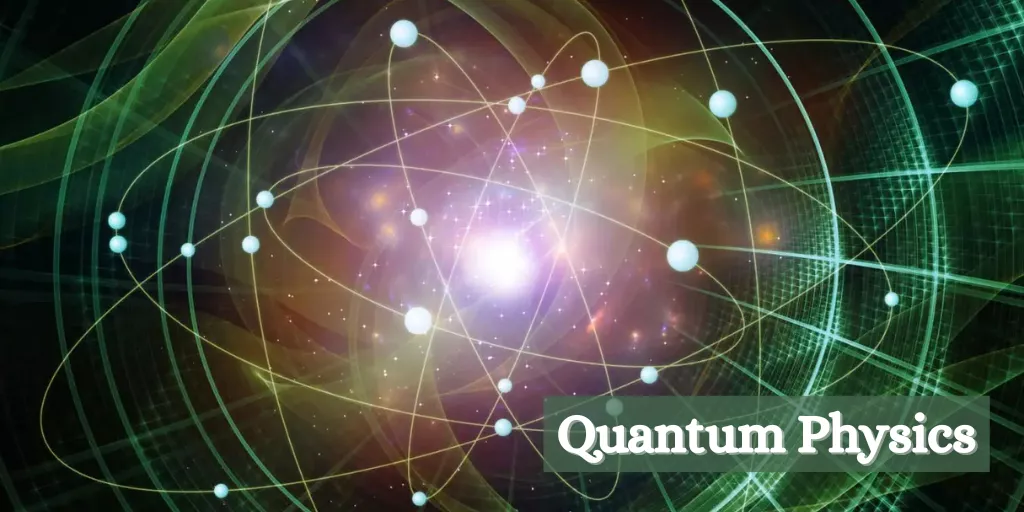Have you ever pondered how the cosmos operates at the smallest scales — smaller than atoms and particles? This is where quantum physics enters. It is an area of physics that explains how the universe’s smallest particles — electrons, photons, and atoms — behave in unexpected and unforeseen ways.
Also See: Discover the Wonders of Astro Physics
What is quantum physics?

- Quantum Physics (or Quantum Mechanics) is the study of matter and energy on the smallest scales, such as molecules, atoms, and subatomic particles.
- Unlike classical physics, which deals with common items and predictable outcomes, quantum physics demonstrates that at the microscopic level, particles can exhibit both wave-like and particle-like behaviour.
- This dual nature was one of the first findings to astound scientists in the early 20th century.
Key Principles of Quantum Physics:
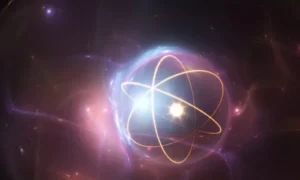
1. Wave-Particle Duality
Light and matter can exhibit both wave-like and particle-like properties. For example, an electron can behave like a small billiard ball while also spreading out like a wave.
2. Superposition
A quantum particle can exist in numerous states simultaneously until it is seen. Think about Schrödinger’s famous cat, which is both alive and dead until you check!
3. Quantum entanglement
Two particles can become linked (entangled) in such a way that changing one immediately affects the other, even if they are far apart. Albert Einstein described this as “spooky action at a distance.”
4. The Principle of Uncertainty
This principle, proposed by Werner Heisenberg, states that it is impossible to simultaneously know a particle’s position and momentum. The more we understand one, the less we understand the other.
What Makes Quantum Physics Vital?
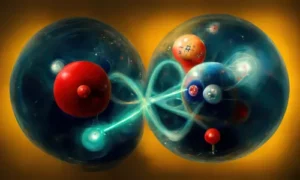
- Modern technology is built on the foundation of quantum physics, which is more than simply a theory. Here are a few examples of practical uses:
- Transistors and semiconductors are found in all computers and cellphones.
- Barcode scanning, surgery, and communication all use lasers.
- The upcoming technological revolution, quantum computing, can solve complicated problems more quickly than any traditional computer.
- Hospitals use MRI scans to provide finely detailed pictures of the human body.
Famous Scientists in Quantum Physics
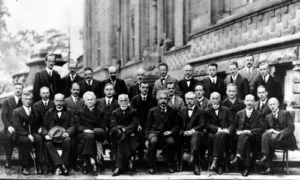
- Max Planck: Father of quantum theory.
- Albert Einstein explained the photoelectric effect.
- Niels Bohr: Developed the model of the atom.
- Erwin Schrödinger: Known for Schrödinger’s cat thought experiment.
- Werner Heisenberg: Introduced the uncertainty principle.
Quantum Physics’s Future
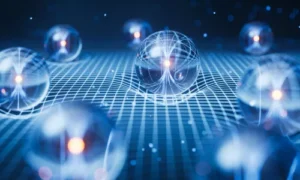
We are still learning more about the universe thanks to quantum physics. The boundaries of what we previously believed to be feasible are being pushed by fields like quantum computing, quantum teleportation, and quantum cryptography.
These technologies have the potential to revolutionise artificial intelligence, data security, and healthcare in the future.
Conclusion
Understanding the laws that control everything in the universe is the goal of quantum physics, which is not just about microscopic particles. It is the secret to the next generation of technical developments and helps explain why our world operates the way it does, despite the fact that it sometimes appears odd and complicated.
FAQs
Q1. Why is Quantum Physics so hard to understand?
Because it deals with probabilities and behaviours that don’t fit with our everyday experiences, making it counterintuitive.
Q2. What is the difference between Quantum Physics and Quantum Mechanics?
They’re essentially the same; “Quantum Mechanics” refers to the mathematical framework, while “Quantum Physics” is the broader scientific field.
Q3. How does Quantum Physics affect daily life?
Many modern devices like computers, LEDs, and medical scanners are based on quantum principles.
Q4. What is Quantum Computing?
It’s a new kind of computing that uses quantum bits (qubits) to perform calculations much faster than classical computers.


